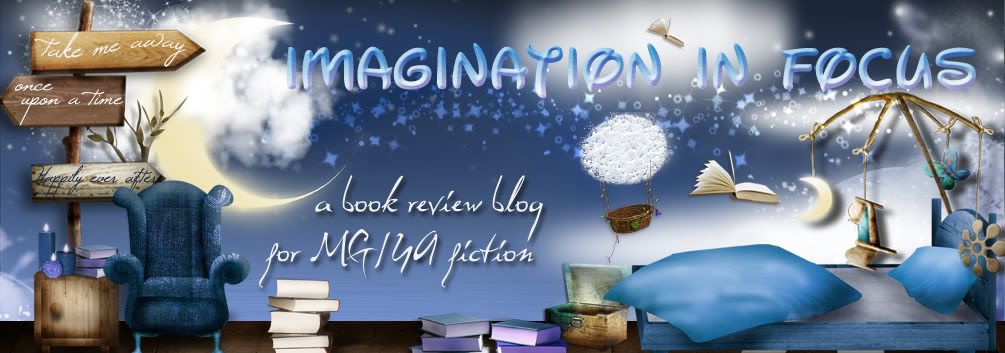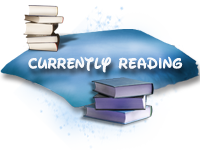 Thanks to Jillian, Rachel, Jessica, Chandler, Amber, Rae, and the Kids/Teen Book Club!
Thanks to Jillian, Rachel, Jessica, Chandler, Amber, Rae, and the Kids/Teen Book Club!So what is the deal with love triangles? It seems like a good majority of popular YA books have this particular element included somewhere in the plot. Sometimes, like Twilight, the romantic aspects carry the overall story, while in other books, like The Hunger Games, it is just one of several aspects that make up the overall story.
So why such an emphasis on the love triangle element?
While I can’t speak for authors and what goes through their minds when they write this element into their stories, I can ask around and get some opinions from you, fellow readers! With a little help from my friends over at Goodreads’ Kids & Teen Book Club, here are some views about love triangles in YA books, from readers like you!
Jillian acknowledges that love triangle stories offer a “certain level of drama higher than typical romances that are often settled relatively easy.” She says that love triangles offer a sort of escapism from normal relationships (“Some girls who are reading these books likely think, ‘I'd love it if two boys fought over me so passionately!’”), in which the readers are all the more willing to lose themselves in the drama and the indecision.
That’s a big “If.”
It seems that there is one triangle in particular that has enchanted readers all over the globe, including the members of our club: Katniss/Gale/Peeta of The Hunger Games trilogy. All throughout the “Love Triangle” topic on our boards, I have heard nothing but praise for Collins’ story, her characters, and her writing style. Chandler echoes the views of many when she asserts that the Katniss/Peeta/Gale story is the best triangle in a YA series. Her reason for favoring this particular triangle? Suspense. “None of us can honestly be 100% certain of who Katniss is going to choose.”
“Circumstances throw her together with a boy who once helped her in the past -- and Katniss finds that she is in the position to help repay him the favor once and for all. However, she does not know that said boy has loved her -- and, when she finds out, she is very wary because she lives in a world of lies and deceptions. She doesn't know to BELIEVE that the boy's feelings are true. And then there's the matter of her friend back home: she says that she has never felt anything romantic for him and that their relationship is not like that. However, she still wonders if her feelings may sway that way one day -- though she has never thought about that possibility because, remember, no marriage and no kids. So Katniss's emotional turmoil over the two boys is more born from the way she has grown up and the ways she has closed herself off emotionally as a consequence of growing up in that world. Her confusion is not entirely her fault. Katniss is an amateur when it comes to love, and thus she does not often understand her feelings. Thus, because SHE does not always understand her feelings, we the readers are just as conflicted as she is -- because, remember, Katniss's story is 1st person where we experience things as she experiences them.”
Question: I have not read THE HUNGER GAMES series yet, so I cannot agree or disagree, but what do you think about THG’s love triangle? Is it your favorite, too?
Beyond The Hunger Games, the Twilight saga is also a series with a recognizable “love triangle,” and one could strongly argue that part of the overall storyline dealt with the Bella/Jacob/Edward scenario. However, most of those who participated in this topic did not have positive things to say about Twilight’s scenario. Personally, I think it has to do with a matter of predictability. While so much suspense surrounds Katniss and who she belongs with, the Twilight series seemed to imply quite heavily that Bella was to Edward as rainboots are to an umbrella [stupid analogy, I know!]. So in my opinion, Twilight was not a “love triangle” but a “girl and a guy and a 3rd wheel.” And we all know who the “3rd wheel” is: poor, put upon Mr. Black.
No puzzle, no wonder, no magic.
And so it seems that we all agree that love triangles, when done right (a la Hunger Games) offer readers puzzles, wonder, and magic…but it seems that Collins’ engrossing love-story element (which is not at all the only element that makes up The Hunger Games trilogy) is the high-point of love triangles, and most of the rest are rather mediocre. “I can’t say that many love triangles are that engrossing," Amber commented. "Most times, they’re annoying because they’re predictable and TOO dramatic, where they border on melodramatic.”
I don’t think she could have said it better. The reason why I have had negative experiences with love triangles in the past - and why I still have reservations about reading books with prominent love triangle elements – is entirely in the predictability and the oft-melodramatic angst associated with it. When love triangles become cliché, when they become stereotypical, I lose excitement. Nobody likes to read something and think, “Oh, I’ve read this before,” or “Oh, I bet I know where this is going!” And I would argue that most of the time, YA love triangles aren’t really “triangles” at all. To me, a love triangle is very Hunger Games-ish: you have one object of affection (mostly girls, but it could be for boys too) and two love interests who have an equal chance of “winning” (for lack of a better world). Notice the emphasis on EQUAL. Most of the time, I think, you have Jacob Black 3rd wheel characters. You know that Main Character Girl is meant for Love Interest Boy, and yet there’s Another Boy who just gets in the way (Twilight obviously comes to mind, but also poor little Simon from The Mortal Instruments). Another member, Rae, said, “I *hate* the whole Love Triangle thing, since there are generally two people that are obviously perfect for one another and some other guy just thrown in there.”
So where do we go from here? Rachel mentioned an interesting idea about a possible love-triangle conclusion: “I would love it,” she says, “if just for once no one in the triangle ends up with each other. They either end up alone or with someone else.” That would definitely be different!
“I don’t think YA authors are going to turn away from love triangles any time soon,” Jillian says. “I think the trend is going to grow even more rampant.” I don’t really know how I feel about that. I mean, I definitely agree with her, but a love triangle should not be just another scenario that authors can check off their “Must Have” list when crafting a story. It seems that our group is in agreement that a love triangle just for a love triangle’s sake is not fun to read.























 This week I'm reading Sapphique, the sequel to Incarceron, and I think I'm enjoying it just a little more! With this book, you've already figured out all the workings of the overall story so you can concentrate more on the plot and on the characters and let your mind relax a little. :)
This week I'm reading Sapphique, the sequel to Incarceron, and I think I'm enjoying it just a little more! With this book, you've already figured out all the workings of the overall story so you can concentrate more on the plot and on the characters and let your mind relax a little. :) 
















































